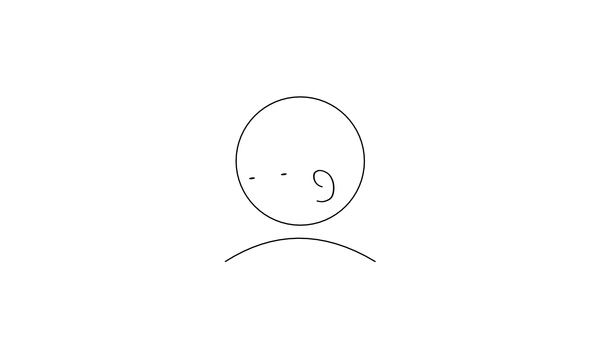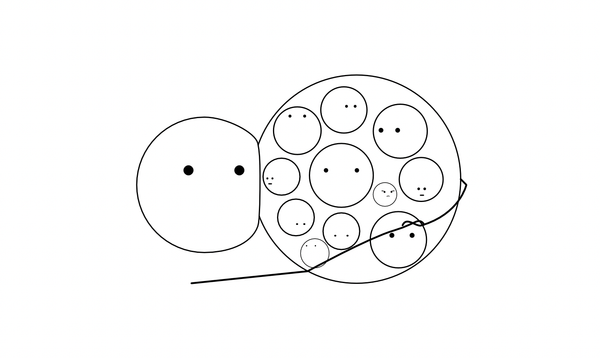Life is change

Where we are is not where we will always be. The only way that the status quo remains is with intense energy and pressure to maintain it. Entropy is fundamental to our universe.
That also means, we don’t have to wait for the big systems to change. We change little bits, in ways that honor people, honor our environment, and honor where we want to go. Then we watch it spread; because when information flows and functions, it spreads. Caveat: unless the energy and pressure used to maintain the status quo are a large fraction of our human effort, it spreads.
Our IT has become fundamentally dehumanizing. Many of our IT systems are built conceptually to only allow people to do what the builders (usually those with more money) want them to do. To follow through on purchases, to pay the how and when the business prefers, to buy the products the business prefers them to buy, to see the information the business wants them to see, and avoid the information the business wants them to avoid.
These systems are often built on the premise that it’s more profitable to quickly & efficiently extract resources from their source — whether material or human — and externalize responsibility as much as possible. That gap in customer service? Now that returns can’t happen; the ding to a business issue doesn’t exist in metrics; the business still has the money; and your frustration is framed as a you problem. It’s externalizing responsibility, information-gapping to optimizing profit.
This has been a pattern deep in our business systems. I can remember my mom yelling at the cable company for pretty much these issues when I was a child. Amazon built a business on clearing up some key frustrations…and then yanked it away once they thought people and potential competitors were hobbled.
It doesn’t have to be this way. This is a choice, one that our business leaders are making over and over again, and shrugging their shoulders and blaming the market. This is a choice that our government leaders are making for us, by smothering, defunding, removing workforce, applying deliberately obtuse high-level management, or otherwise hobbling social-function areas of government. No consumer data privacy, limit FDA oversight into food systems, revoke attempts to increase competition, put a non-scientist in charge of our health standards, and more.
Our businesses have shown that their ethics are lacking once one business gets away with anti-social behavior. It’s a scramble to reach lower, because it also happens to be lucrative to dehumanize people. When shareholder value is vaunted as the single metric of success, every possible profit point has to be wrung dry. When the social balances have no teeth — limited fines, undiminished presence in the marketplace, no leadership accountability — as business creates problems in the name of profit, there will be no ethics. Ethics becomes synonymous with leaving money on the table, in an environment where malfeasance is cheap.
This is where we are.
It would be wonderful if a few big businesses decided that having a society was key to having business. It is — no people, no money. But I don’t see any moving in that direction. There’s more movement in the other direction: more ergs spent on stasis, no longer tracking what they don’t want to accept, pretending like the sudden bonus of a smaller staff doesn’t pertain to the larger society shift of less money in fewer people’s pockets to spend on their products.
It is up to the people, to small businesses and bootstraps, to make the shift to a more humanist technology. If we want IT. I’m seeing patterns that can lead to people just leaving IT as a funny little blip in our history (like Furbies!) except where they absolutely cannot make do. It’s not gaining steam yet, but based on a wide variety of people I’ve spoken with recently, there is a thread of being tired of the frustration, and starting to understand IT is a vector. IT has an opportunity to stay in front of it, but I don’t see it happening in the US. There are more rumbles out of the EU.
That potential loss of an amazing tool I put at the feet of big tech. They got high off the power of surveillance, one-sided “agreements” that are really just “my way or the highway,” and automated income. They forgot the social contract, they forgot give-and-take, and they dismissed the diversity of humanity, all at scale.
I love information. I have spent my life trying to understand the abstractions of information. I have loved IT. I would spend down to my last dollar to see IT become humanist.
There are patterns I’ve found in my own time, built for my own business. I’m unable to develop them myself, because I truly become a bitch when I try to code. It’s not how my brain works. I can either have the mental agility to find these patterns and feel like a swallow swooping in the sky for bugs; or, I can hate myself and code.
I choose the swooping. :) It is, actually, humanist. We find better functionality when multiple people intent on fixing problems (as opposed to pushing agendas) work together. Not so much when we decide we should do it all, even the stuff that doesn’t fit our brain or in which we lack expertise. We are many; let’s be many.
Humanism is in the information. It is about finding a different way into the problem, honoring the information, and honoring people — all people, in as many ways as it’s possible to balance. The first attempts won’t be perfect, because we’re all stuck in the cognitive patterns and existing software of our current, highly usurious cultures. But we try, and iterate; we don’t just accept that the way it’s currently done is the last answer, forever held in amber.
This is how you do humanism in IT. This is where we can go.




